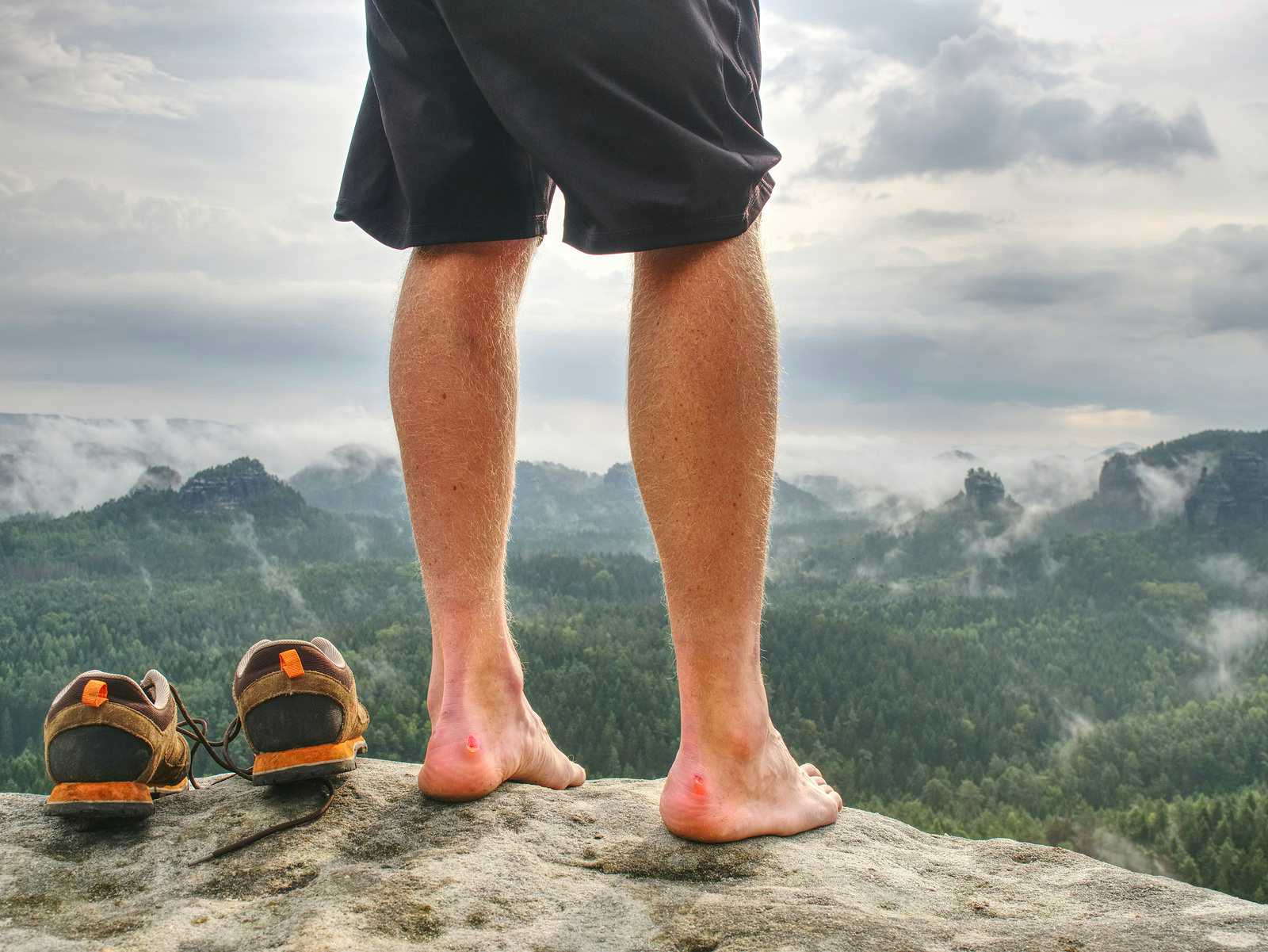
Have you ever developed a blister while walking or hiking? If you aren’t prepared, the rest of the hike can be agony. Is there any way to prevent blisters in the first place? Obviously, comfortable shoes are essential. Never take new shoes on vacation! And if you are into any sports (tennis, basketball, golf, volleyball, running) break your new shoes in gradually. What else can you do to prevent blisters? One reader wonders whether applying antiperspirant with aluminum would be helpful or harmful.
The Pros and Cons of Aluminum to Prevent Blisters:
Q. I have read on your website that putting antiperspirant on your feet could potentially prevent blisters. On the other hand, you have also written about the dangers of antiperspirants that contain aluminum. How do you reconcile this information?
A. Although blisters are common, scientists have devoted little effort to studying them. Many years ago, researchers recruited more than 600 cadets from the US Military Academy and conducted a double-blind trial (Journal of the American Academy of Dermatology, Aug. 1998). For five nights the cadets applied a strong antiperspirant to their tootsies. On the sixth night they hiked for 21 kilometers (13 miles).
Half the cadets who applied a placebo to their feet developed blisters. Only one fifth the cadets who used the antiperspirant on their feet developed blisters. So, a strong aluminum-containing antiperspirant was able to prevent blisters. There was a downside, though. Over half of antiperspirant group experienced skin irritation.
The investigators concluded:
“A 20% solution of aluminum chloride hexahydrate in anhydrous ethyl alcohol may be effective in reducing foot blisters during hiking; however, the side effect of skin irritation should be considered and preventive measures studied to reduce this irritation.”
Absorption of Aluminum Through Feet?
The 20% aluminum chloride product that the US Military Academy used is stronger than commercial brands. You can buy 12% aluminum chloride products over the counter for excessive sweating.
It is hard to say how much aluminum would be absorbed after applying antiperspirant to the feet. To our knowledge, no such a study has ever been carried out.
Aluminum Absorption Through Underarms?
What about skin absorption from the underarms? One study published in Clinical and Translational Science (online, July 27, 2018) tested a standard concentration of OTC aluminum chlorohydrate. This is a common ingredient in many antiperspirants. The scientists used a very special radioactive isotope of aluminum chlorohydrate (26Al). That way they could accurately measure systemic exposure.
Eleven healthy women applied the radioactive aluminum antiperspirants to their underarms. Two of the twelve had detectable levels in their blood. 31% of the urine samples had detectable levels of aluminum.
The women also received intravenous aluminum for comparison. Interestingly, 7 of the 11 reported “mild paresthesia.” Merriam-Webster defines paresthesia this way:
“a sensation of pricking, tingling, or creeping on the skin having no objective cause and usually associated with injury or irritation of a sensory nerve or nerve root.”
WebMD asks “What Is Paresthesia?” The description these experts offer:
“Maybe you fell asleep with your arm pinned under you. Or you kept your legs crossed too long. Chances are, you’ve had a “pins and needles” feeling in your limbs, fingers, or feet. That prickling, burning, tingling, numb, itching, or ‘skincrawling’ feeling is called paresthesia. While it may seem weird, it’s usually painless and harmless. But sometimes it can be a sign of a more serious medical problem.”
This was after IV exposure, but it does suggest that aluminum can affect nerves. One volunteer experienced “salivary hypersecretion.” We would call that drooling. Some people have described aluminum as “neurotoxic.”
The authors also report:
“During topical administration there were two instances of rash/pruritus [itching], both considered to be possibly treatment related.”
The authors suggest that “antiperspirants make only a minor contribution to systemic exposure.” That stated, it is clear from this research that aluminum was detectable in about one third of the urine samples that were tested. That means some aluminum from antiperspirants can get into the body. The clinical significance of daily exposure to aluminum for a lifetime is unknown.
Other Ways to Prevent Blisters:
Alternative approaches for blister prevention and treatment include products from 2nd Skin (Spenco). The company makes adhesive knit bandages to prevent rubbing. They also offer gel and blister pads. They even sell a “Blister Kit.” These pads contain water in a gel base that offer protection to tender skin.
We have used 2nd Skin Dressing Kit and 2nd Skin Moist Burn Pads ourselves to protect or prevent blisters. We think it is worth having such products in your first aid kit. (We have no relationship with Spenco.)
Soy Sauce for a Blister?
We know this sounds crazy. And we do not think it will prevent blisters. We recently heard from a reader that soy sauce could help heal blisters.
Do You Know About Soy Sauce for a Blister?
Aluminum-Free MoM Deodorant Sale:
The study we described above about aluminum antiperspirant absorption was funded by Cosmetics Europe. We acknowledge that the amount of aluminum absorbed into the body was “low.” That said, we suspect that many people would prefer to avoid aluminum entirely. Read why at this link:
What’s In Your Armpit: Aluminum or Magnesium?
To celebrate the launch of our newly designed website we are offering a 20% discount on all our aluminum-free Milk of Magnesia (MoM) deodorants. The sale will last from July 15 thru July 19, 2019. The sales is automatic. No codes necessary.
What do you do to prevent blisters? Please share your story in the comment section.


